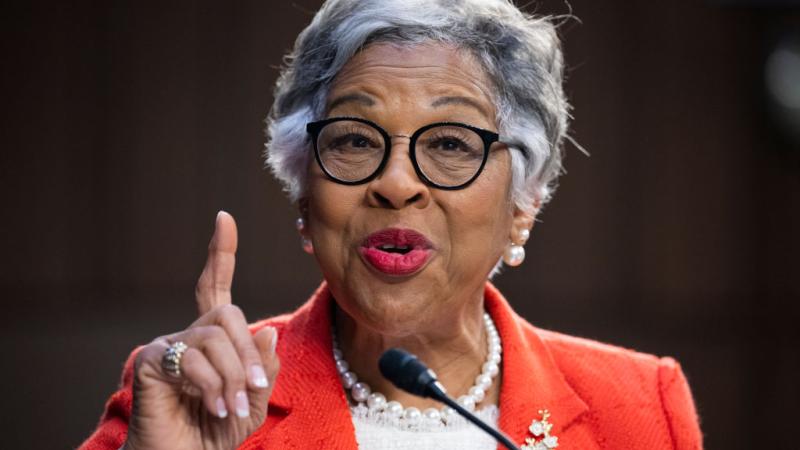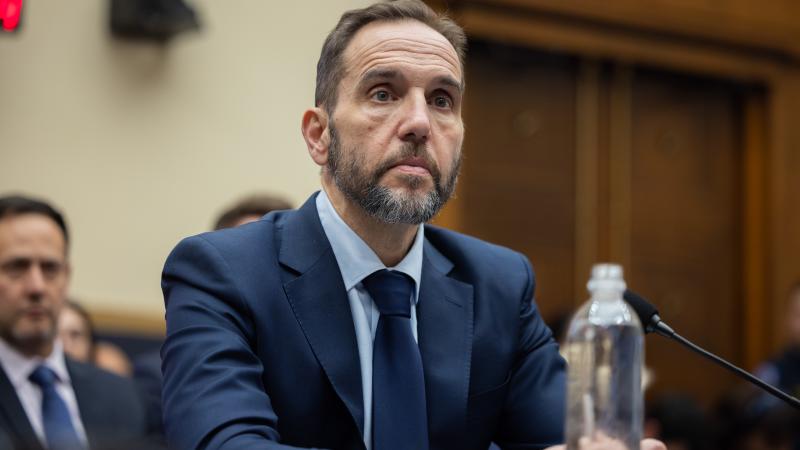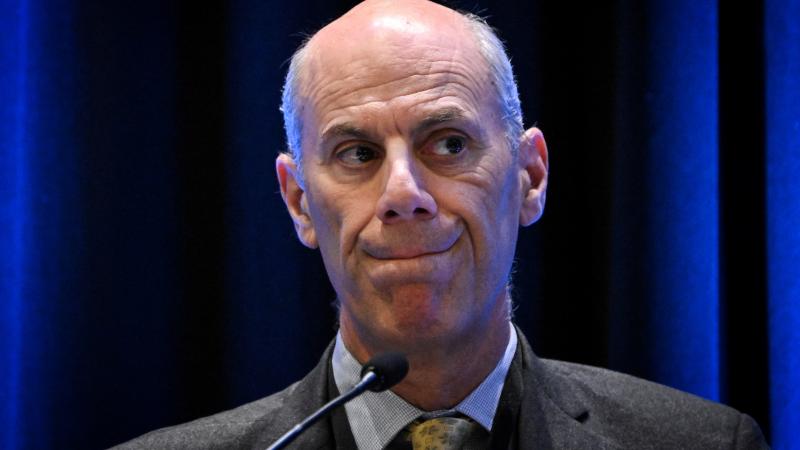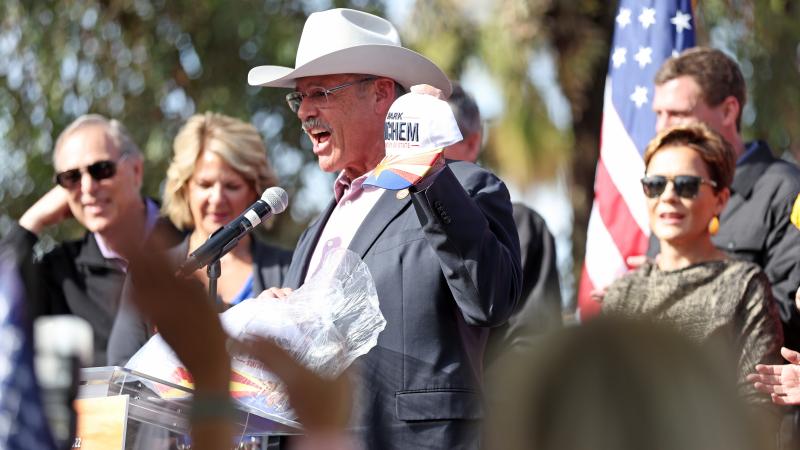Tillis: Projected Medicaid costs to North Carolina budget too much
U.S. Sen. Thom Tillis, R-N.C., was one of two votes from his party late Saturday night against passage of the One Big Beautiful Bill Act. House Resolution 1, he said, had tens of billions of dollars in lost funding for North Carolina hospitals and rural communities.
(The Center Square) -
Improvements in the budget reconciliation bill, the North Carolina senator ultimately decided, were not satisfactory to “pass the president’s agenda” as he said one month ago.
U.S. Sen. Thom Tillis, R-N.C., was one of two votes from his party late Saturday night against passage of the One Big Beautiful Bill Act. House Resolution 1, he said, had tens of billions of dollars in lost funding for North Carolina hospitals and rural communities.
“This will force the state to make painful decisions like eliminating Medicaid coverage for hundreds of thousands in the expansion population, and even reducing critical services for those in the traditional Medicaid population,” Tillis said. “The Senate should return to the House’s Medicaid approach. That plan includes commonsense reforms to address waste, fraud and abuse; and implements work requirements for some able-bodied adults to ensure taxpayer-funded benefits are going to our most vulnerable neighbors.”
Tillis wanted to vote for the measure.
“There is a lot for North Carolinians to love about the rest of the One Big Beautiful Bill, including extending the historic Trump tax cuts, increasing the child tax credit, providing historic funding for border security, and ending wasteful spending,” he said after his no vote. “We can and must accomplish this without hurting our rural communities and hospitals, and without jeopardizing access to care for hundreds of thousands of North Carolinians who need it the most.”
The Congressional Budget Office, in an analysis shared by Democrats of the Finance Committee on Saturday, estimated cuts to Medicaid to reach $930 billion. Tillis released a Finance Committee report specific to the state saying the state’s budget would have a $32 billion impact to cover hospitals over the next decade.
Other published reports had the figure closer to $40 billion.
For more than a decade after passage of Obamacare, Republican majorities of the Legislature flatly rejected expansion of Medicaid because of costs. Finally passing it two years ago was historic in multiple storylines.
North Carolina became the 41st state to expand Medicaid in 2023 as part of a deal by a Republican majority General Assembly and former Democratic-Gov. Roy Cooper. It was Cooper’s chief campaign and gubernatorial priority. The deal cemented when a separate standalone bill on expansion mandated a two-year budget bill was required to be enacted with or without the governor’s signature.
In the $60.7 billion package 84 days late of the July 1 start to the fiscal year, the General Assembly included universal school choice for all K-12 students – known as opportunity scholarships – including private schools. It also did not provide funding Democrats have long sought related to what is known as the three-decades running Leandro litigation. Cooper didn’t sign or veto, and both became law.
The state got a $1.6 billion bonus from the federal government for enacting Medicaid.
Passed 51-49 just before midnight Saturday evening with Vice President J.D. Vance in the building just in case of a tie, the vote was procedural and begins debate. A final vote could come Sunday or Monday.
The House of Representatives – where its version passed 215-214 – would need to agree to changes. President Donald Trump hopes to sign it on or before Friday.
Sen. Rand Paul, R-Ky., was the other Grand Old Party vote against.
All 45 Democrats and two independents caucusing with them also voted no. Sens. Ron Johnson, Rick Scott, R-Fla., Mike Lee, R-Utah, and Cynthia Lee, R-Wyo., were among late votes swinging in favor. Sens. R-Wis., Josh Hawley, R-Mo., and Susan Collins, R-Maine, swung sooner.
Tillis and Collins are considered most dangerous Republican seats to flip or change in the 2026 midterms.
“Numerous people have come forward wanting to run in the primary against ‘Senator Thom’ Tillis,” Trump wrote overnight on social media. “I will be meeting with them over the coming weeks, looking for someone who will properly represent the great people of North Carolina and, so importantly, the United States of America.”
Rumors of Trump hopeful to primary Tillis are not new. Candidate filing period opens at noon Dec. 1 and runs through noon Dec. 19, and the state’s senior senator – and third-longest tenured among the state’s 16 in the Beltway – has $5.6 million cash on hand. That's 11th-highest of senators' reeelection bids.
In late May, Tillis had said, “Republicans must extend the Trump tax cuts and pass the president’s agenda. Failure is not an option. Here’s what needs to happen next in the Senate: We will make some improvements to the Big, Beautiful Bill, push for more spending cuts, and get the job done.”
Tillis has taken heat back home in western North Carolina for comments related to the embattled Federal Emergency Management Agency. And it's only part of potential opponents' early campaign fodder.
He has agreed in principle with Trump on reducing health care costs but not on the means to the end. Tillis was the last to agree for confirmation of Pete Hegseth to lead the Pentagon. And on a 12-10 GOP majority panel, it was Tillis in the Judiciary Committee who stalled Ed Martin’s confirmation route for a U.S. attorney seat in the District of Columbia.
The Facts Inside Our Reporter's Notebook
Links
- vote for the measure
- Tillis released a Finance Committee report specific to the state
- Passed 51-49 just before midnight Saturday evening
- $5.6 million cash on hand
- Tillis had said
- agreed in principle with Trump on reducing health care costs
- last to agree for confirmation of Pete Hegseth
- stalled Ed Martinâs confirmation route for a U.S. attorney seat












